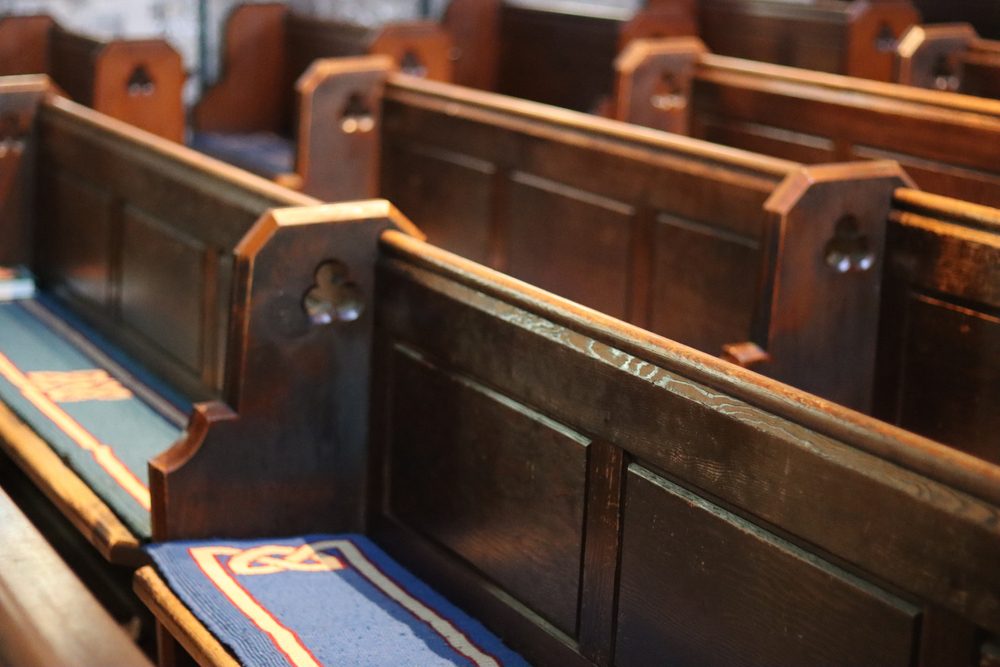
Heard the latest happy findings from Barna Research?
According to the evangelical polling group: in 2000, 45 percent of U.S. adults surveyed fit the criteria for practicing Christians—meaning they self-identified as Christians who value their faith and attend church at least monthly. Today, the number sits at 20 percent.
Basically, freefall. Of a shocking nature. But why?
I asked that question on a social media page and garnered quite a few responses. To wit, a left of-center friend responded that it’s because of the distasteful, homophobic fundamentalism of Trump’s cheerleaders on the religious right.
If you are from the left, that might make sense. Until, of course, you realize that people are fleeing from progressive LGBTQ-friendly churches far, far more quickly than from steadfastly orthodox congregations.
Another friend proposed that we lack basic discipleship. That might be closer to the truth, but the fact of the matter is that every church makes disciples of some kind. Whether those disciples are well-grounded and are committed members of the Body of Christ is another issue altogether.
Someone commented that we have ceased preaching truth. Another countered: We preach truth and nominal Christians have decided they don’t like it and have marched out.
So why the freefall? A dozen or more good reasons have combined to make it a tough landscape for the faithful.
Here’s my two cents: Cor incurvatus ad se. That’s the Latin phrase used by Martin Luther, German theologian and reformer, to describe the sinful life.
Cor = heart.
Incurvatus = curved in.
Ad = To.
Se = Self.
So…a heart curved in on itself. Too many churches are curved in on themselves. Nearly all the time, talent, effort, and money churches expend is used to build themselves up, while a hurting world wonders where the hope is.
This was perhaps best expressed by the late Tom Skinner, evangelist and urban minister. He maintained that those of us who tithe may as well admit that we are tithing to ourselves. That money, pooled with other givers’, is used to pay the best preacher the church can afford.
If there are some funds left over, they might go to the best youth and/or children’s pastor, the nicest building, the loveliest carpet. All of those expenditures benefit us, the church members.
Sure, we will take up a nice collection for missions and sing at the nursing home at Christmas, but on the whole, we are turned inward.
My wife teaches Latin in our home and, as you might imagine, taught our children that ancient language as well. So I asked them what the opposite of Cor incurvatus ad se would be (something that might make Luther a little less grumpy). They offered me this: Cor excurvatus ad alios.
Cor = heart.
Excurvatus = curved out
Ad = to
Alios = others.
A heart curved out to others. For the Church, who might those “others” be? First, the Father, Son and Holy Spirit…in worship. Then, people in need: the unchurched, the prisoners, the woman with a crisis pregnancy, nursing home residents, schoolchildren in need of a Bible club, the homeless, the destitute.
Rodney Stark penned a marvelous treatment of the early church, titled The Rise of Christianity. He attests that in its first several hundred years, the church was very much poured out to those in dire need. In so doing, Christians “outlived the pagans.” And attracted the Empire.
And yet, I personally have done enough research on churches to know that very, very few of the organized saints embody a cor excurvatus reality. Very. Very. Few.
Dietrich Bonhoeffer, in a letter from prison, said, “The church is only the church when it exists for others.” And if these “others” don’t loom large in the vision and practice of the local church, we shouldn’t be surprised when people conclude that merely serving ourselves—even with excellent staff, programs, and facilities—isn’t a compelling reason to attend church.
The theology of cor excurvatus suggests that the watching world—in and beyond the church walls—might be a little more interested in a church that actively seeks to be “the salt of the earth” and the “light of the world.”









